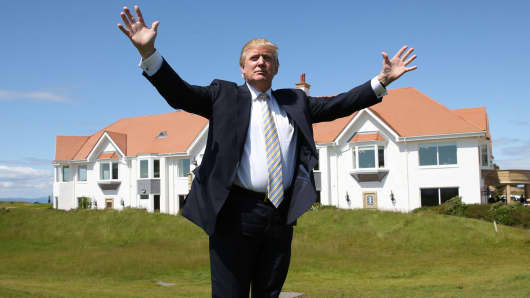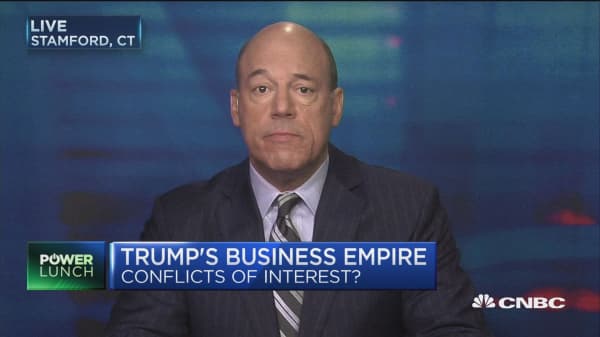Most of the controversies surrounding President-elect Donald Trump during and after the election were especially divisive along old and new partisan lines. His statements about immigration, trade, and now his cabinet choices all seem to please or outrage voters based on their ideological background.
But the biggest Trump fans and "Never Trumpers" alike should be concerned about something we haven't yet quite experienced on such a serious scale in American politics, and that is having a President of the United States who's also the owner of dozens of iconic and eponymous businesses. Oh, and so far that incoming president says he intends to continue owning and running them.
It's not just that Mr. Trump is a businessperson, it's the fact that he has so many varied and well-known business interests that the potential for conflict of interest is almost infinite. This is a far cry from President Jimmy Carter, who was able to solve his potential conflicts simply by handing his peanut farm over to an independent lawyer for his term in the White House.
Sure, it's possible someone could have found a way to curry favor with Mr. Carter by doing a generous amount of business with that farm, but that was always a bit of a stretch. And since the farm was President Carter's one and only recognizable business, doing any kind of shady deal connected to it would have been very hard to conceal or whitewash in some way.
The President-elect owns residential and commercial real estate in the most expensive urban locations in America, hotels and golf clubs all over the world, just to name a few. He has varied stock holdings in any number of companies that could easily be positively effected by legislation or Executive Orders. Just today, the Associated Press reported that he has a relatively small stock holding in the company building the highly controversial Dakota Access oil pipeline. The list goes on and on.
And so far, Mr. Trump has been basically defiant in response to critics who say he needs to make some major moves to reduce the temptations from every side for financial/political chicanery. During his meeting with the New York Times earlier this week, Trump said he intends to keep running his businesses and that, "the law's totally on my side, the president can't have a conflict of interest. And legal scholars have since mostly backed him up on that claim, with the possible exception of deals with foreign countries.





